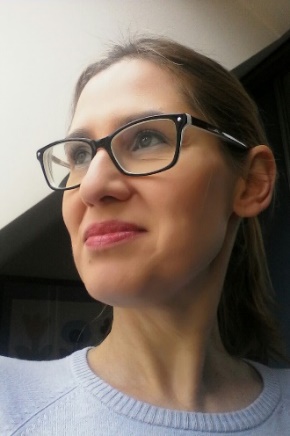How to write (science) better
This course helps non-native users of English make their writing clear, concise and readable.
This course helps non-native users of English make their writing clear, concise and readable.

The course was created as part of the project "MOOC@PB-Nowoczesne technologie w procesie kształcenia"; agreement id POWR.03.01.00-00-W040/18-00.
The course teaches students and academics of various engineering disciplines how to choose words and phrases to construct well-polished sentences, and how to combine sentences to produce readable specialist texts. Every lesson is accompanied by numerous examples from abstracts and full journal papers written in English by Polish research students and established scientists.
The aim of this course is to share with scientific writers that composing a specialist text can rely on simple English that provides tools to write concisely and in a well-organized manner. These tools, common to the so-called Plain English, are applicable on lexical, sentential and textual levels. As a result, a piece of specialist writing is easier to produce and it can reach a wider readership, for the economy of expression and a clear structure are always valued by expert and non-expert readers.
After completing this course you will know the following:
Week 1 reviews key functions of verbs and nouns. It discusses roles their grammatical categories play in sentence production. It also shows how to expand the vocabulary to enrich your writing style.
Week 2 focuses on writing with fewer words. Lessons include how to: cut lengthy phrases; avoid self-evident expressions; and choose strong verbs rather than nouns to make a specialist text clearer and more concise.
Week 3 shows how to name things using noun combinations. You will also see how applying parallelism enhances clarity and readability of sentences, paragraphs and presentation slides.
Week 4 shows how to control sentence structure and produce cohesive texts. Lessons include, for example, favouring the active voice, keeping the word agreement, employing the end-focus and varying the sentence length in a paragraph.
This section contains some useful information about how the course is organised.
Content organisation: The course material consists of training materials (videos), quizzes and progress tests.
Time commitments: This course takes you four weeks to complete. You are expected to spend 3-4 hours a week working through the course material.
Prerequisites: Recommended level of English – B2 and above.
Discussion forum: Feel free to post any questions and suggestions you might have about the course. Why don’t you actively participate in the forum discussion to share your ideas and expertise?
Grading policy: The course includes activities designed to help you interact with the course material (the quizzes) and activities designed to assess your understanding of the material covered in the course (the progress tests). The course finishes with additional practice (ungraded) and the final test (graded).
In order to pass the course and qualify for a certificate, you must score at least 70% as an average of the quizzes, progress tests and final test.
References: This course mainly draws on examples taken from original student writing (abstracts and full journal papers). In some instances the names of the authors have been withheld. The references for other sources are provided in the videos and activities.

Monika Śleszyńska is a lecturer at the Foreign Language Centre of the Bialystok University of Technology. Apart from regular ESP classes (mostly technical English), she runs skill-oriented courses for PhD students and university teachers: How to Give an Effective Presentation in English; Academic English at Work; Speaking and Writing Science in Plain English; and From the Word to the Text. Writing (Science) Better. She enjoys sharing her expertise with teachers in Poland (the IATEFL Poland 2017 Conference, the 4th International Conference Language and Law – Traditions, Trends and Perspectives, 2019) and abroad (e.g. Cordoba, Wolverhampton, Istanbul). Her professional and research interests focus on simpler English for speaking and writing in the sciences.
Course design and implementation: Tomasz Nosal
Animations and video production: Jarosław Kuptel